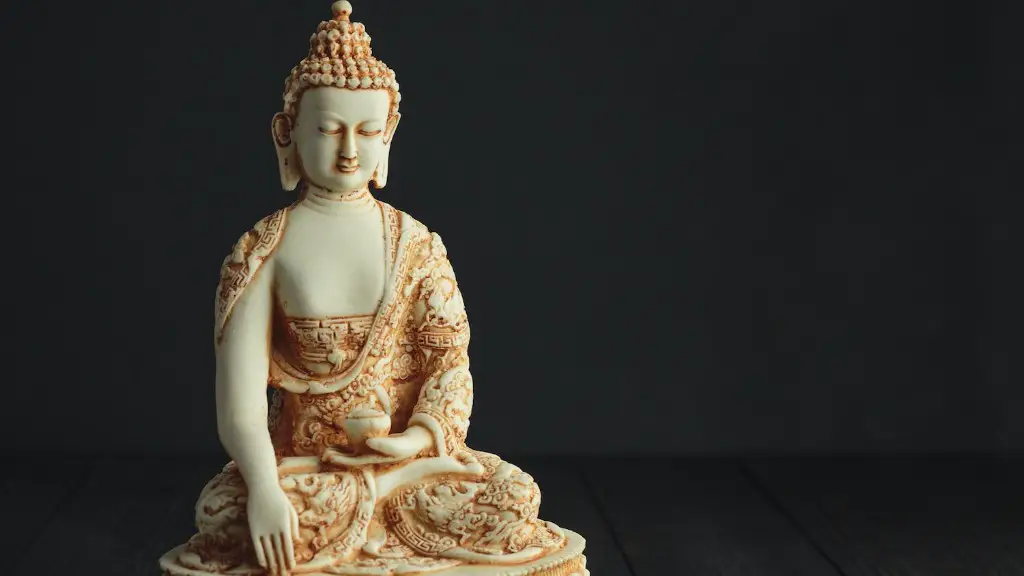Buddhism is a religion that was founded by Siddhartha Gautama in the early 6th century BCE. Siddhartha Gautama was born into a wealthy family in what is now Nepal. He left his home and family at the age of 29 to search for the truth about life, death, and suffering. After six years of searching, he became enlightened and began teaching others what he had learned.
Buddhism teaches that the way to end suffering is to live a life of compassion, kindness, and mindfulness. The goal of Buddhism is to reach a state of nirvana, which is a state of complete peace and freedom from suffering.
There are many different branches of Buddhism, each with its own unique practices and beliefs. However, the core beliefs of Buddhism are shared by all branches. These beliefs include the Four Noble Truths, the Eightfold Path, and the Three Universal Truths.
There are many religious beliefs in Buddhism. Some believe in Buddha, and some follow his teachings. Others believe in karma, and that good deeds will be rewarded in this life and the next.
What are the 3 main beliefs of Buddhism?
Buddhism is a religion based on the teachings of Siddhartha Gautama, who was born in India in the 6th century BC. The main principles of Buddhism are karma, rebirth, and impermanence. Buddhists believe that karma is the law of cause and effect, and that good deeds will lead to good outcomes in the future. Buddhists also believe in rebirth, and that after death, a person’s soul is reborn into another body. Lastly, Buddhists believe in the principle of impermanence, which is the belief that everything is constantly changing and nothing lasts forever.
The Five Precepts are guidelines for living a moral and ethical life. They are:
1. Refrain from taking life
2. Refrain from taking what is not given
3. Refrain from the misuse of the senses
4. Refrain from wrong speech
5. Refrain from intoxicants that cloud the mind.
These precepts help us to live in a way that is in harmony with others and with the world around us. They remind us to be mindful of our actions and their consequences. When we follow the precepts, we are living with compassion and wisdom.
What are Buddhist beliefs and values
Buddhists believe in the Four Noble Truths, which are that suffering exists, that suffering has a cause, that suffering can be ended, and that there is a path to the end of suffering. They also believe in the Eightfold Path, which is a way of living that leads to the end of suffering.
Siddhartha Gautama was the first person to reach the state of enlightenment and is known as the Buddha. Buddhists do not believe in any kind of deity or god, although there are supernatural figures who can help or hinder people on the path towards enlightenment.
What is Buddhism vs Christianity?
There are some inherent and fundamental differences between Buddhism and Christianity. Christianity is monotheistic and relies on a God as a Creator, whereas Buddhism is generally non-theistic and does not believe in a Creator God. Buddhism also does not believe in divine values for the world.
The precepts are commitments to abstain from killing living beings, stealing, sexual misconduct, lying and intoxication. Within the Buddhist doctrine, they are meant to develop mind and character to make progress on the path to enlightenment.
The precepts are important because they help us to develop qualities such as compassion and wisdom. By following the precepts, we learn to live in a way that is in harmony with others and with the world around us.
What are Buddhist beliefs about death?
Buddhist teaching views life and death as a continuum, believing that consciousness (the spirit) continues after death and may be reborn. Death can be an opportunity for liberation from the cycle of life, death and rebirth.
The Eight Precepts are guidelines for living a moral and ethical life. They encourage us to abstain from activities that can cause harm to others, such as killing, stealing, and telling lies. These precepts remind us to live in a way that respects the dignity and worth of every human being.
What is one of the most important beliefs in Buddhism
One central belief of Buddhism is that people are reborn after dying. This is often referred to as reincarnation. In fact, most individuals go through many cycles of birth, living, death and rebirth. A practicing Buddhist differentiates between the concepts of rebirth and reincarnation.
Pāpa and apuñña are Sanskrit words that refer to the evil elements that defile the mind and have a deadening effect on the psyche, making it difficult for its upliftment. In Buddhism, sin is not believed to be caused by a personal God or any Supreme Being, but rather by the negative actions and thoughts of an individual. Thus, the concept of sin is more about the individual’s own mental and emotional state, rather than anything external.
What is the main goal of a Buddhist?
The goal of Buddhism is to become enlightened and reach nirvana. Nirvana is believed to be attainable only with the elimination of all greed, hatred, and ignorance within a person. Nirvana signifies the end of the cycle of death and rebirth.
In Buddhism, there is no concept of punishment or reward and there is no divine being who decides who goes to hell or heaven. There is merely the illusory results of our thought, words and deeds, which we call karma.
Do Buddhists celebrate Christmas
Some Buddhists may celebrate Christmas in their own way, but not necessarily in the Christian way. They may see Jesus as an avatar of being blessed to our beloved Earth.
Did you know that there are divine beings in Buddhist teachings called devas? These beings are often translated as gods, and they play an important role in the doctrine of saṃsāra, or cyclical rebirth. In Buddhism, it is believed that beings can be reborn into different worlds after they die, and the devas are responsible for guiding beings to their next rebirth. If you’re interested in learning more about these fascinating creatures, be sure to check out the Buddhist scriptures!
Is Buddhism a faith or religion?
Buddhism is a faith that was founded by Siddhartha Gautama (“the Buddha”) more than 2,500 years ago in India. With about 470 million followers, scholars consider Buddhism one of the major world religions. The Buddha was born a wealthy prince but later became a mendicant (wandering ascetic). After years of study and meditation, he is said to have attained “enlightenment” and developed a system of ethical and spiritual teachings. The core of the Buddha’s teaching is the Four Noble Truths: that suffering is an inherent part of life; that the cause of suffering is craving or desire; that suffering can be ended; and that the way to end suffering is through the Eightfold Path of right understanding, right thought, right speech, right action, right livelihood, right effort, right mindfulness, and right meditation.
Christians and Buddhists have radically different beliefs about God, creation, and salvation. Christians believe in one God who created the world and offers salvation to those who believe in Him. Buddhists, on the other hand, believe in reincarnation and enlightenment. Nirvana is the ultimate goal of Buddhism. There is no way to reconcile these two belief systems.
Why does Buddhism not believe in a god
Atheism is not a central tenet of Buddhism or Jainism, but both religions are compatible with atheism. The Buddha himself rejected the idea of a creator god, and Buddhist philosophers have even argued that belief in an eternal god is nothing but a distraction for humans seeking enlightenment. In Jainism, the 24th Tirthankara, Mahavira, was an avowed atheists and taught that the universe is eternal and without a creator. While both Buddhism and Jainism are nontheistic religions, they do not necessarily require their followers to be atheists.
Ānantarya Karma, or Ānantarika Kamma, are the most serious offences in Buddhism. At death, through the overwhelming karmic strength of any single one of them, they bring immediate disaster. Both Buddhists and non-Buddhists must avoid them at all costs.
Warp Up
There is no one answer to this question as Buddhist beliefs vary depending on the individual and the tradition they follow. However, some key beliefs that are common in Buddhism include the importance of ethics and morality, the law of karma, rebirth, and the Four Noble Truths. Additionally, while Buddhists do not believe in a personal god, they do respect and follow various Buddhas and bodhisattvas who are seen as enlightened beings.
There are many different types of Buddhism, each with their own beliefs. Some commonly held beliefs are that all beings have Buddha-nature and can become Buddhas, that karma determines our rebirths, and that nirvana is the highest goal.


